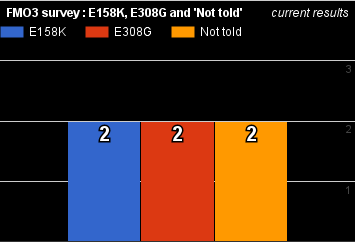
Firstly, I am using metabolic and systemic in this context to mean the same thing.
What is metabolic body odor ?
It is where the person smells of malodorous volatiles that are circulating in the bloodstream. In a normal person these volatiles are probably neutralized by being oxidized. In someone with metabolic body odor, there is probably a mismatch between the amount of volatiles and the ability to neutralize them (probably via oxidizing) causing an overload of the enzyme for some reason.
Metabolic body odor is different from 'surface body odors' or 'local halitosis' in that the smells are not generated on the surface or in the mouth. The smell are from the bloodstream (or perhaps lymph)
Why is trimethylamine the only volatile documented as causing metabolic body odor ?
It's probably the only volatile ever looked for. It was 'discovered' in 1970 in a anecdotal case where the patient's mother said the patient sometimes smelt of fish. The health professionals seem to have guessed this may be trimethylamine and tested for this alone. Since then only about a handful of health professionals or researchers have had any interest in TMAU and probably nothing has been done to check for other volatiles.
Why is FMO3 enzyme a strong suspect for causing the metabolic body odor known on forums as 'fecal body odor' ?
FMO3 enzyme oxidizes many sulfides and amines in humans. Many/most of these are probably smelly. Currently someone with an FMO3 deficiency is only expected to smell of trimethylamine but is also predicted to not handle sulfide and amine compounds well such as drugs. So if people with TMAU say they smell of many bad smells, it seems very possible they are smelling of many FMO3 substrates and not just trimethylamine. Many of these sulfides and amines are probably generated in the colon and then absorbed in the bloodstream.
Any other possible enzymes that could be suspect for 'fecal body odor' ?
Since fecal smells are probably a range of quite a few volatiles, any of the broad-spectrum oxidizing enzymes could possibly be a suspect. The mixed-function oxidase enzymes are a group of enzymes that ozidize a wide range of compounds in hmans. FMO3 is part of this family of enzymes. However my own suspicion is that FMO3 is the main suspect enzyme until proven otherwise.
Other types of metabolic body odor other than 'fecal body odor'
It is very possible that other enzymes could be at fault for various metabolic malodor conditions. However most enzymes tend to 'neutralize' a specific group of volatiles that may tend to give the person one particular smell. For instance carriers of isolvaleric acidemia may have a sweaty sock smell.
But people with 'fecal body odor' seem to have a wide range of malodors probably from a wide range of volatiles, and such a wide range are probably dealt with by one or more of the mixed function oxidizing enzymes (e.g. FMO3, CYP3A4). So since 'fecal body odor' is probably a wide range of volatiles, it seems more likely to be one of these oxidizing enzymes. 'Fecal body odor ' seems to be the term most use for their malodor complaint.
What needs to be done ?
People with metabolic body odor need :
A phenotype test : An exploratory test that then becomes a diagnostic test when a pattern emerges. This would probably be an 'untargeted' volatile urine test (which would then become a 'targeted' test when a pattern emerges)
A DNA test : FMO3 would seem to be the main gene test to do, until any other enzymes are made suspects.
A enose consumer sensor : People with any type of body odor/halitosis do not seem to be able to smell their malodor. So it seems that a consumer enose sensor would greatly help anyone with any type of body odor/halitosis. The odors the enose detects would need to be designed to match the type of malodor. For people with 'FMO3 malodor' it would probably have to detect certain sulfides and amines.
Get notified of new posts by email
Join the email list via the sidebar
Join the email list via the sidebar

0 comments:
Post a Comment